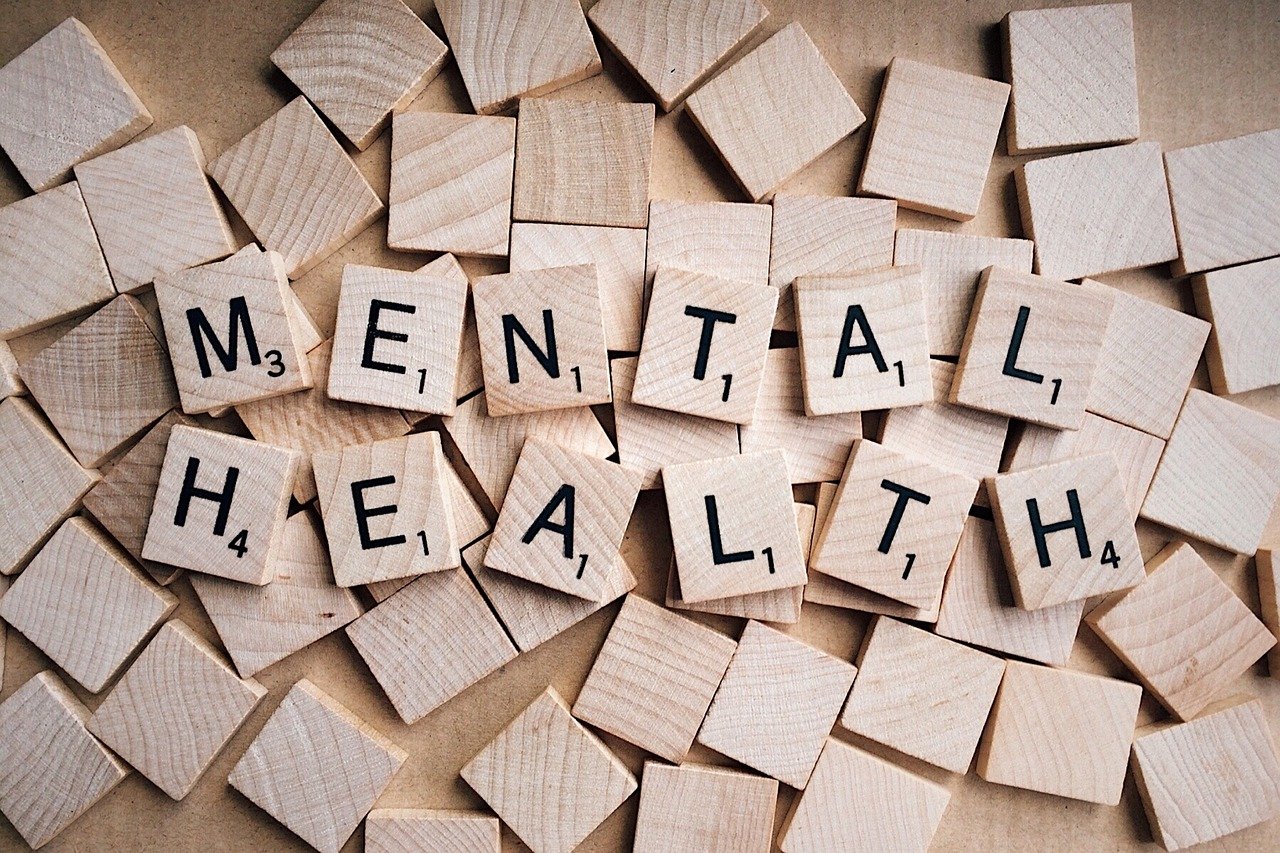Dispelling Stigmas Surrounding Mental Health and Diabetes
#ez-toc-container {
background: #f9f9f9;
border: 1px solid #aaa;
border-radius: 4px;
-webkit-box-shadow: 0 1px 1px rgba(0, 0, 0, .05);
box-shadow: 0 1px 1px rgba(0, 0, 0, .05);
display: table;
margin-bottom: 1em;
padding: 10px 20px 10px 10px;
position: relative;
width: auto;
}
.ez-toc-container-direction {
direction: ltr;
}
.ez-toc-list-level-1 a{
font-weight:bold;
}
Table of Contents
1. Introduction to Mental Health and Diabetes
In recent years, the conversation surrounding mental health has evolved significantly, pushing it to the forefront of healthcare discussions globally. In tandem, another crucial health issue—diabetes—continues to affect millions worldwide. These two conditions, often considered separate, have a significant correlation that can impact patient care and treatment outcomes profoundly.
Overview of the Correlation between Mental Health and Diabetes
The interplay between mental health and diabetes is multifaceted. On one hand, individuals with diabetes face a higher risk of developing mental health disorders such as depression and anxiety. Conversely, those with existing mental health conditions are at a greater risk of developing type 2 diabetes. This bidirectional relationship can exacerbate symptoms of both conditions, leading to a diminished quality of life.
- Psychological Impact: The chronic nature of diabetes, requiring constant management and lifestyle changes, can trigger feelings of stress, burnout, and depression.
- Biological Factors: Stress-related hormones such as cortisol can affect insulin resistance, blood sugar levels, and overall physical health.
- Lifestyle Challenges: Mental health conditions can lead to poor dietary choices, physical inactivity, and medication non-adherence, all of which can contribute to the onset or exacerbation of diabetes.
Brief Discussion on Common Stigmas Associated with Both Conditions
Despite the prevalence of both mental health disorders and diabetes, stigmas associated with these conditions remain rampant. These misconceptions can discourage individuals from seeking help, impairing treatment effectiveness and worsening health outcomes.
- Diabetes Stigma: Many people erroneously believe that diabetes is solely a result of poor lifestyle choices or food indulgence, neglecting the role of genetics and other factors. This stigma can lead to feelings of shame and guilt among those diagnosed.
- Mental Health Stigma: Mental health issues are often perceived as signs of weakness or personal failure, which discourages open communication about these struggles.
- Intersection Stigma: When mental health and diabetes intersect, the stigmas can compound, with individuals feeling doubly burdened by misconceptions surrounding both conditions.
Importance of Addressing These Stigmas for Better Health Outcomes
Tackling the stigmas around mental health and diabetes is crucial for improving health care outcomes and enhancing the quality of life for those affected. Understanding and empathy are key elements that can foster a supportive environment for individuals managing these conditions.
- Improved Healthcare Access: Reducing stigma can encourage individuals to seek timely medical advice and treatment, crucial for managing both mental health and diabetes effectively.
- Patient Empowerment: Addressing stigmas helps empower patients, ensuring they feel understood and supported, which can lead to more proactive management of their health conditions.
- Enhanced Public Awareness: Educating the public about the realities of living with mental health issues and diabetes can dismantle misconceptions, fostering a more inclusive society.
In conclusion, acknowledging the correlation between mental health and diabetes and addressing the stigmas associated with these conditions is essential. By fostering a supportive and understanding environment, we can not only improve individual health outcomes but also prompt a shift towards a more informed and compassionate healthcare system.

2. Common Misconceptions and Stigmas
Mental health and diabetes, both critical components of overall well-being, are often misunderstood due to widespread misconceptions and stigmas. These myths and stereotypes not only cloud public perception but also significantly hinder individuals’ willingness to seek treatment and support. This segment aims to dismantle some of these prevalent myths, highlight stigmatizing language, and illustrate the profound impact stigma has on patients and their families.
Common Misconceptions about Mental Health
- Mental Illness is Rare: A common myth is that mental disorders are uncommon. In reality, mental health conditions affect millions of people worldwide, transcending age, gender, and cultural backgrounds.
- Weakness and Lack of Willpower: Another myth suggests that mental health issues are signs of personal weakness or lack of self-discipline. Mental illnesses are medical conditions, not character flaws.
- Mental Health is Separate from Physical Health: There’s a misconception that mental health does not impact physical health. However, mental health is deeply connected to physiological conditions, including diabetes, highlighting the necessity for integrated care approaches.
Common Misconceptions about Diabetes
- Eating Too Much Sugar Causes Diabetes: While diet plays a role in diabetes management, the condition is not caused by excessive sugar consumption alone. It involves complex genetic and lifestyle factors.
- Diabetes is Not Serious: Many trivialize diabetes as a manageable inconvenience rather than a serious health condition. Diabetes can lead to severe complications if not properly managed.
- Only Overweight People Get Diabetes: This myth overshadows the fact that diabetes can affect individuals of various body types and sizes.
Examples of Stigmatizing Language and Stereotypes
- “Insane” or “Crazy”: These labels are often used carelessly to describe individuals with mental illness, perpetuating negative stereotypes.
- “Lazy Diabetic”: This stereotype inaccurately portrays individuals with diabetes as being negligent of their health, ignoring the complex nature of diabetes management.
- “She’s So Bipolar”: Using clinical terms as casual descriptors diminishes the seriousness of mental health conditions.
The language used to describe mental health and diabetes can reinforce harmful stereotypes, affecting public perception and policy. It’s crucial to advocate for respectful and accurate language to foster a more inclusive society.
Impact of Stigma on Treatment-Seeking Behavior
Stigma surrounding mental health and diabetes can have detrimental effects on individuals’ decisions to seek treatment and their overall health outcomes. Some of the impacts include:
- Delay in Treatment: Individuals may avoid seeking help due to fear of judgment, leading to worsening symptoms and complications.
- Non-Disclosure: The fear of stigma may prevent individuals from sharing their condition with family or employers, depriving them of necessary support.
- Inadequate Support Systems: Stigmatizing attitudes within families can lead to a lack of support, crucial for effective management of both mental health and diabetes.
Ultimately, dismantling misconceptions and reducing stigma is essential for encouraging open dialogue, improving patient outcomes, and fostering a supportive environment for individuals facing these health challenges. By promoting awareness and understanding, society can pave the way for more compassionate and effective healthcare interventions for mental health and diabetes.

3. Psychological Impacts of Dealing with Dual Diagnoses
Managing diabetes is a challenging task on its own, but when compounded by mental health issues, it becomes a complex process that affects a person both physically and psychologically. The dual diagnosis of diabetes and mental health disorders can significantly complicate management strategies, as each condition can exacerbate the other. Understanding these psychological impacts is critical to developing effective management plans that address both health aspects.
Psychological Impacts of Dealing with Dual Diagnoses
Individuals experiencing both diabetes and mental health disorders often face a unique set of challenges. These can range from the practicalities of adhering to a comprehensive treatment regimen to the emotional impacts of living with chronic illnesses. This segment will delve into how these intertwined health issues affect each other and the overall quality of life for those affected.
How Mental Health Issues Complicate Diabetes Management
Mental health issues such as depression, anxiety, and stress can significantly interfere with diabetes management. These conditions can impact motivation and the ability to adhere to treatment plans. Here are a few ways in which mental health issues can complicate diabetes management:
- Insulin Regulation: Emotional stress and mental health disorders can alter body chemistry, leading to fluctuations in blood sugar levels. This makes it difficult for patients to manage insulin dosages effectively.
- Diet and Exercise: Mental health conditions like depression can decrease motivation, leading to poor dietary choices and a lack of physical activity, further complicating blood sugar control.
- Medication Adherence: Individuals with mental health disorders may struggle with remembering to take their medications or may avoid medication due to stigma or depression.
- Self-Monitoring: Anxiety and stress can reduce the frequency of blood sugar testing and result in neglect of essential self-care routines.
The Emotional Toll of Being Stigmatized
Living with dual diagnoses often carries a societal stigma that can have profound emotional consequences. The stigma associated with mental health conditions, in particular, can exacerbate feelings of isolation and shame, leading to a vicious cycle of worsening mental health and diabetes management outcomes.
- Social Isolation: Fear of judgment may cause individuals to withdraw from social situations, leading to loneliness and depressive symptoms.
- Shame and Guilt: Many patients internalize societal stigma, leading to feelings of shame and guilt over their conditions, which can reduce their willingness to seek help or adhere to treatment.
- Anxiety: The pressure of managing dual conditions amidst societal stigma can increase anxiety levels, making it harder to maintain effective diabetes management.
The Role of Stress and Anxiety in the Management and Progression of Diabetes
Stress and anxiety are two significant psychological factors that can influence both the management and progression of diabetes. Not only do they contribute to poor diabetes outcomes, but they also perpetuate a cycle of worsening mental health. Understanding the role of stress and anxiety is crucial in creating effective diabetes management plans.
- Impact on Blood Sugar Levels: The release of stress hormones like cortisol can make it harder for the body to process insulin, leading to spikes in blood sugar levels.
- Behavioral Consequences: Anxiety and stress often lead to unhealthy behaviors, such as overeating or neglecting exercise, further complicating diabetes management.
- Feedback Loop: Worsening diabetes symptoms due to stress can cause more anxiety, creating a feedback loop that is challenging to break without intervention.
- Importance of Stress Management Techniques: Incorporating stress management techniques such as mindfulness, therapy, and physical activity can be critical components of a diabetes management plan.
Addressing the psychological aspects of dual diagnoses is just as important as addressing the physical symptoms. Acknowledging and adequately treating mental health disorders can lead to more effective diabetes management and a better overall quality of life. Understanding these interactions prompts healthcare providers to adopt more holistic and comprehensive approaches to treatment.
It’s essential to foster an empathetic and supportive environment, encouraging open communication about mental health to combat stigma and improve overall health outcomes for individuals facing dual diagnoses.
4. Stories of Resilience and Overcoming Stigmas
Living with the dual challenge of mental health conditions and physical disabilities can often be a daunting journey, marked by societal stigmas and personal hurdles. However, stories of resilience and overcoming these stigmas are a testament to human spirit and determination. In this section, we shed light on personal stories and highlight strategies that individuals have used to triumph over prejudices, while also discussing the vital role of community support and resources.
Personal Stories and Testimonials
-
Anna’s Journey:
Anna was diagnosed with bipolar disorder and a chronic physical disability in her early twenties. Facing a dual stigma from the onset, she experienced discrimination both in professional and personal environments. However, Anna chose to share her story publicly through blogs and community talks, which not only empowered her but also provided support to others in similar situations. Her messages of hope and resilience have since inspired many.
-
Carlos’ Testimonial:
Carlos grew up in a community with limited understanding of mental health. Living with depression and mobility issues, he initially faced prejudice and isolation. Carlos credits his success in overcoming these challenges to the support of a local support group and his involvement in community outreach programs. His active participation has helped him find strength in numbers and reduce the stigma he once faced alone.
-
Sarah’s Success Story:
As someone who has battled both anxiety and visual impairment, Sarah faced many uphill battles in her journey. Her approach involved seeking therapy and joining online support communities where her experiences found validation and understanding. Sarah’s persistence in educating her peers about her conditions has turned her into an advocate for change, shining a spotlight on the need for greater inclusivity and awareness.
Strategies to Overcome Prejudices
-
Education and Advocacy
One of the most effective ways individuals have countered stigma is through education. By becoming advocates for mental and physical health, they educate others about their conditions, helping dispel myths and foster understanding. Anna, for example, used her personal narrative to educate her community, breaking down barriers of prejudice and advocating for empathy and inclusivity.
-
Peer Networking and Mentorship
Connecting with others in similar situations has proven invaluable. Establishing peer support networks where individuals can share experiences and strategies creates an environment of mutual learning and support. Carlos, found solace and strength in his local support group, where sharing stories helped dismantle the stigma associated with his conditions.
-
Promoting Positive Representations
Changing how society views both mental health and physical disabilities can be significantly impacted by promoting positive representations in media and public discourse. People like Sarah who actively participate in storytelling platforms help create a narrative of empowerment rather than limitation.
The Role of Community Support and Resources
-
Community Support Groups
Support groups offer a lifeline to many dealing with dual challenges. These groups provide a safe space for individuals to express themselves freely, without fear of judgment. Being a part of a supportive community enables a shared understanding that fosters resilience and empowerment.
-
Access to Resources
Access to mental health services and disability support is crucial in managing dual conditions. Providing information regarding therapists, mental health hotlines, and disability networks empowers individuals to seek help proactively. Early interventions and continuous support can make a significant difference.
-
Engagement in Community Programs
Participation in local community programs helps in creating awareness and promoting change. Programs that encourage the participation of all community members, regardless of their physical or mental challenges, play a vital role in fostering an inclusive society. Sarah’s engagement in such programs allowed her to contribute meaningfully, helping break the stigma surrounding her conditions.
Every story of resilience and overcoming stigmas adds to the collective strength of the community. By highlighting these stories, employing effective strategies, and leveraging community support, individuals can empower themselves and others, paving the way toward a future where stigma no longer holds power over the lives of those with mental health conditions and physical disabilities.







